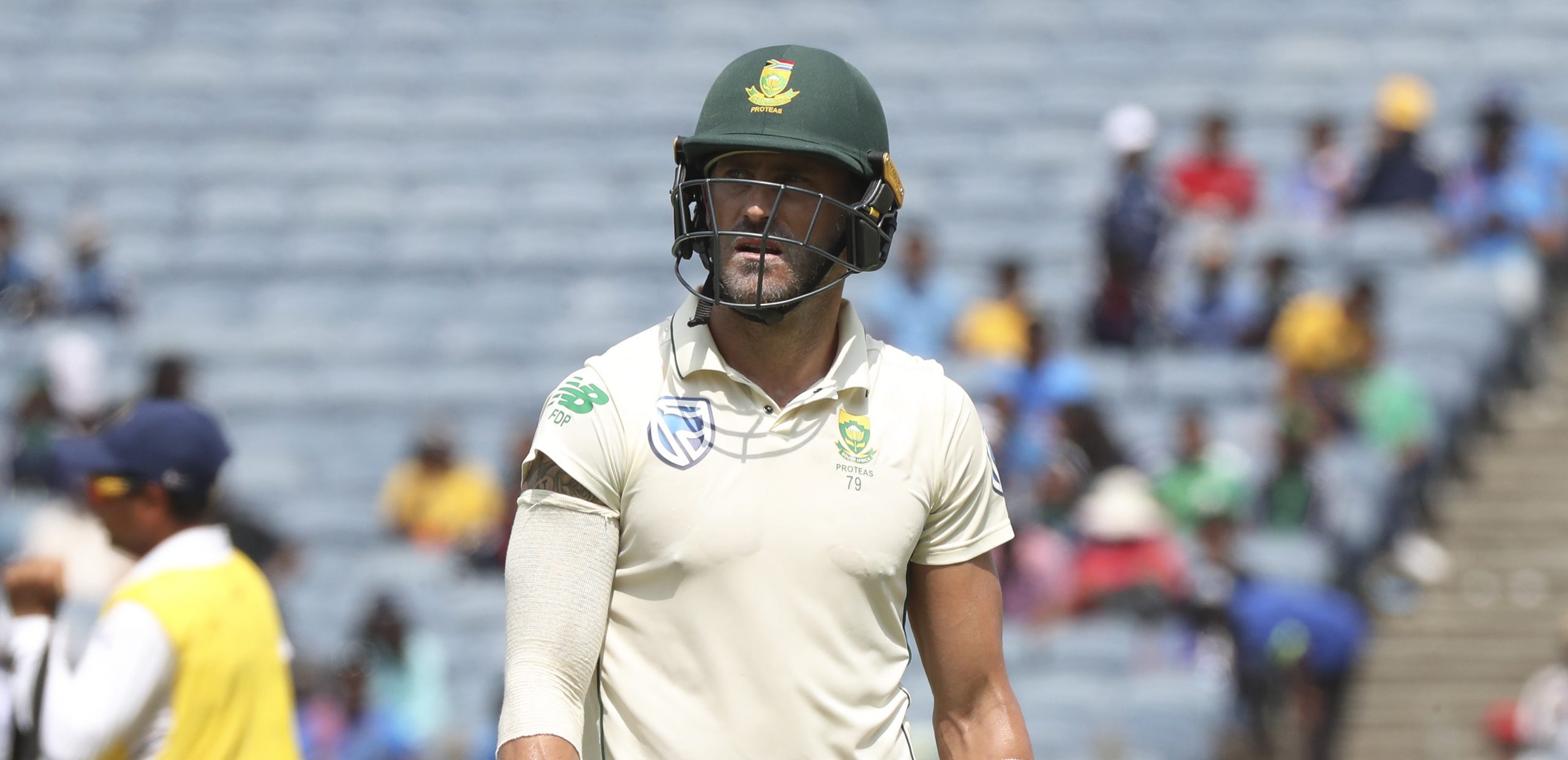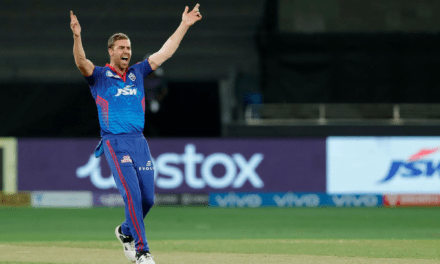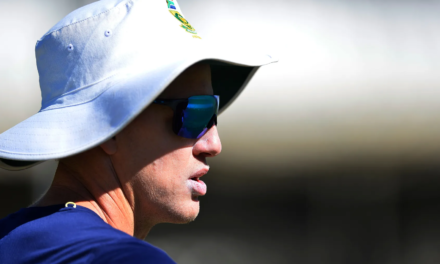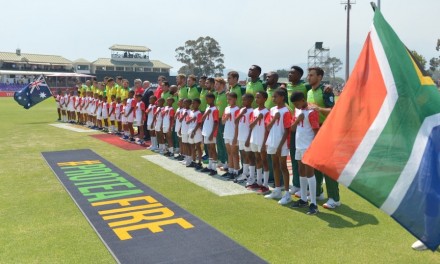Former South African cricket captain, Faf du Plessis, was at his eloquent best in a webinar on leadership organized by the South African Business Council in the United Arab Emirates, writes Aditya Mehta.
“In cricket, you fail a lot more than you succeed. A big part of my captaincy was dealing with failure. It’s about how you come back.”
Du Plessis discussed a vast array of topics consisting of his time as captain of South Africa, the toughest challenges in his tenure as captain of South Africa, playing for the Chennai Super Kings (CSK) and their performance in this season of the Indian Premier League, and the importance of working towards better mental health.
Faf du Plessis has always relished leadership responsibilities. While Du Plessis believes he is a “decent player,” he is driven by the challenge of leading a cricket team. Having captained cricket teams from a young age, leadership has been central to du Plessis’ identity and that is when he has enjoyed his cricket the most.
In 2011, he was recruited by CSK, with MS Dhoni (captain) and Stephen Fleming (coach) at the helm of affairs. In his formative years at CSK, Du Plessis made every effort to pick Dhoni and Fleming’s brains, given both were incredibly accomplished captains of their respective national teams.
Du Plessis soon discovered that while he could be inspired by their leadership styles, he had to find his own modus operandi. Du Plessis preferred a structured approach to captaincy, but his experience as a player under Dhoni revealed that a calm and instinctive approach, without intense strategizing and team meetings, can also produce the desired result.
When Du Plessis was named skipper of the Proteas, one of his priorities was to ensure that the younger players were made to feel comfortable in the dressing room. Knowing that many of the selected young players would be playing alongside cricketers they grew up admiring, Du Plessis always emphasized, “We’re all equal. Your voice is as important as mine.”
In saying that, he also gave senior players more responsibility. The central tenet of Du Plessis’ captaincy, however, was honesty. “With honesty,” he said, “comes all these different hats.”
On some days, it would mean “putting a shoulder around someone” after a “bad day in the office” because one of his old coaches once said to him, “every player needs love.” On another day, his honesty would demand more from his players if their preparation was not rigorous enough. Through Du Plessis’ tenure as captain, he had to find a way to deal with failure.
The Proteas’ 2019 World Cup campaign, in particular, hurt him. After dedicating two years to planning for the World Cup, and armed with the knowledge that the batting group was not delivering consistently enough, Du Plessis and the brains trust of the Proteas looked to the bowlers to provide them with a competitive edge.
Unfortunately, the Proteas lost three frontline fast bowlers to injury within the first week of the World Cup, which set the tone for the rest of their tournament. In the aftermath of the World Cup debacle, a number of people told Du Plessis that it was the right time for him to relinquish the captaincy.
While a part of him agreed with the idea, he had always put “South African cricket first and wanted to be true to it” because there was a tough Test tour to India scheduled, and Du Plessis felt dutybound to lead an inexperienced South African team against a formidable Indian Test team.
The last year of Du Plessis’ captaincy was, undoubtedly, his most challenging. Apart from ensuring that the Proteas performed at the level expected of them, he had to direct a lot of his energy towards managing sensitive matters behind the scenes. Ultimately, Du Plessis got to a point where it felt right to step down from the captaincy.
Calling it the toughest decision of his life, given how passionate he was about leading the Proteas, Du Plessis thought it was wise to let a new coach and captain implement their vision for the team.
Du Plessis has advocated for a better information-sharing structure between captains so that the current captain can learn from his predecessor’s mistakes. A year into his captaincy, Du Plessis reached out to former South African captain, Graeme Smith, for advice. Similarly, Du Plessis is interested in helping future captains so that they can avoid making the mistakes he made as captain.
Over the last few years, Du Plessis has paid special attention to his mental health. Cognizant of the fact that all cricketers go through phases of anxiety, fear, and varying levels of depression, he believes it is imperative for cricketers to focus on their mental health. Du Plessis began working on it by reflecting on his priorities – family, friends, and hobbies such as surfing and mountain biking – and remaining balanced in success and failure.
Currently, in the UAE with the Chennai Super Kings, Du Plessis said that living in a bio-secure bubble presented its own set of challenges, but he was grateful to be playing cricket again. One of the IPL’s most successful franchises, CSK has not qualified for the playoffs for the first time in IPL history.
Analyzing CSK’s inconsistent run this year, Du Plessis attributed the team’s performance primarily to the fact that the team was curated for Chennai’s spinning conditions, and struggled to adapt its skillset to the UAE. Additionally, the team management had planned for a three-year cycle (2018-20), in which CSK won the title in 2018 and were runners-up in 2019.
It was always going to be a challenge for the team to replicate those performances this year, seeing it was an ageing team, with many players coming off very little competitive cricket. Du Plessis was all praise for CSK’s management for continuing to back their players and making them feel valued. They have always been consistent in their selections and both, MS Dhoni and Stephen Fleming have remained humble in victory and defeat, encouraging the team to focus more on the process instead of results.
Finally, du Plessis said Jonty Rhodes’ heroics in the field made him fall in love with the game. Jacques Kallis’ batting prowess inspired him to bat in a similar manner. After realizing he could not, du Plessis knew he had to find a way to maximize his potential.
In an international career spanning a decade, he found his own method and gave cricket fans across the globe joy of Brobdingnagian proportions through his batting, fielding, and captaincy.
History will be kind to him for the performances he delivered and the players his captaincy nurtured, but Faf du Plessis will be remembered for being the “good person” he always aspired to be.











